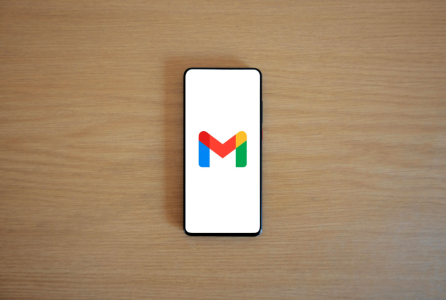FBI uncovers genius email scams—protect your inbox now
By
Aubrey Razon
- Replies 0
Cybercriminals are getting smarter, and your inbox is their next target. A single click could put your personal and financial information at risk.
Are you prepared to protect yourself from the latest digital threats?
The sophistication of recent attacks on Gmail users is nothing short of alarming.
Cybercriminals are no longer relying on the old-school tactics of phishing; they've upgraded their arsenal with AI, making their schemes more convincing and harder to detect.
These aren't just random attempts; they're calculated and targeted campaigns designed to trick even the most vigilant among us.
According to the Hoxhunt Phishing Trends Report, phishing attacks have surged by 49% since early 2022, with AI-generated threats now comprising nearly 5% of all phishing attempts.

While a significant portion of these attacks are aimed at organizations, individuals are by no means safe.
The ease with which these attacks can be launched is startling, with some services offering the creation of AI-driven phishing campaigns for as little as $5.
The FBI's message is clear and straightforward: do not click on anything in an unsolicited email or text message.
This advice may seem elementary, but it's grounded in the reality that most phishing attacks, regardless of their complexity, require the victim to click on a malicious link at some point.
Cybersecurity expert Adrianus Warmenhoven from Nord Security has likened the ease of phishing to assembling flat-pack furniture.
With the median time for users to fall for phishing emails being less than 60 seconds, the threat is both immediate and severe.
Warmenhoven emphasizes that no advanced coding skills are needed to create convincing fake websites, making phishing a more prevalent and successful tactic for cybercriminals.
1. Regular Monitoring
Keep an eye on your accounts for any signs of unauthorized access or data breaches. Early detection can prevent significant damage.
2. Password Managers
Use a reputable password manager to store and autofill your passwords.
These tools are designed to recognize legitimate websites, reducing the risk of entering your credentials on a fake site.
3. Advanced Security Features
Take advantage of Google's advanced security measures, which include warnings about dangerous messages and unsafe content.
Even if you don't receive an alert, exercise caution when dealing with downloads or requests for personal information.
4. Verify Suspicious Communications
If you receive a message that seems to be from a legitimate source but asks for private information, do not respond directly.
Instead, visit your Google Account page through a new browser window, without clicking any links in the message, to verify the request's authenticity.
5. Educate Yourself
Stay up-to-date with the latest security advice from trusted sources like Google and the FBI. Knowledge is power when it comes to cybersecurity.
Remember, your Gmail account is a gateway to a wealth of personal data.
By following these guidelines and staying alert, you can significantly reduce the risk of falling victim to these cunning attacks.
Protecting your inbox isn't just about keeping spam at bay; it's about safeguarding your digital identity.
 Have you encountered a phishing attempt in your inbox? Do you have tips for remembering complex passwords or managing your online security? Share your experiences and tips in the comments below.
Have you encountered a phishing attempt in your inbox? Do you have tips for remembering complex passwords or managing your online security? Share your experiences and tips in the comments below.
Let's work together to keep our inboxes—and our lives—safe from these sophisticated threats.
Are you prepared to protect yourself from the latest digital threats?
The sophistication of recent attacks on Gmail users is nothing short of alarming.
Cybercriminals are no longer relying on the old-school tactics of phishing; they've upgraded their arsenal with AI, making their schemes more convincing and harder to detect.
These aren't just random attempts; they're calculated and targeted campaigns designed to trick even the most vigilant among us.
According to the Hoxhunt Phishing Trends Report, phishing attacks have surged by 49% since early 2022, with AI-generated threats now comprising nearly 5% of all phishing attempts.

Phishing attacks by cybercriminals have become more accessible and effective. Image source: BM Amaro/Pexels.
While a significant portion of these attacks are aimed at organizations, individuals are by no means safe.
The ease with which these attacks can be launched is startling, with some services offering the creation of AI-driven phishing campaigns for as little as $5.
The FBI's message is clear and straightforward: do not click on anything in an unsolicited email or text message.
This advice may seem elementary, but it's grounded in the reality that most phishing attacks, regardless of their complexity, require the victim to click on a malicious link at some point.
Cybersecurity expert Adrianus Warmenhoven from Nord Security has likened the ease of phishing to assembling flat-pack furniture.
With the median time for users to fall for phishing emails being less than 60 seconds, the threat is both immediate and severe.
Warmenhoven emphasizes that no advanced coding skills are needed to create convincing fake websites, making phishing a more prevalent and successful tactic for cybercriminals.
How to fortify your Gmail account
To combat these threats, it's crucial to stay vigilant and informed. Here are some expert tips to help you safeguard your Gmail and other email accounts:1. Regular Monitoring
Keep an eye on your accounts for any signs of unauthorized access or data breaches. Early detection can prevent significant damage.
2. Password Managers
Use a reputable password manager to store and autofill your passwords.
These tools are designed to recognize legitimate websites, reducing the risk of entering your credentials on a fake site.
3. Advanced Security Features
Take advantage of Google's advanced security measures, which include warnings about dangerous messages and unsafe content.
Even if you don't receive an alert, exercise caution when dealing with downloads or requests for personal information.
4. Verify Suspicious Communications
If you receive a message that seems to be from a legitimate source but asks for private information, do not respond directly.
Instead, visit your Google Account page through a new browser window, without clicking any links in the message, to verify the request's authenticity.
5. Educate Yourself
Stay up-to-date with the latest security advice from trusted sources like Google and the FBI. Knowledge is power when it comes to cybersecurity.
Remember, your Gmail account is a gateway to a wealth of personal data.
By following these guidelines and staying alert, you can significantly reduce the risk of falling victim to these cunning attacks.
Protecting your inbox isn't just about keeping spam at bay; it's about safeguarding your digital identity.
Key Takeaways
- The FBI has issued a strong warning to Gmail users about the increasing sophistication of AI-powered phishing attacks targeting email accounts.
- Phishing attacks by cybercriminals have become more accessible and effective, with some attacks requiring little time and effort to execute, making them a prevalent threat.
- Users are advised to avoid clicking on anything in unsolicited emails or text messages, and to use tools like password managers which help prevent entering credentials on suspicious websites.
- Google provides advice on securing Gmail accounts, which includes being cautious with unsolicited requests for personal information and validating any security concerns with one's Google Account directly, without clicking on potentially malicious links.
Let's work together to keep our inboxes—and our lives—safe from these sophisticated threats.






